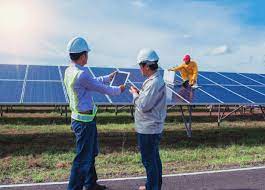
Let’s be honest—staring at your quarterly energy bill feels like getting a pop quiz on numbers you didn’t agree to. If you’re a small business owner, especially in retail, that line item can feel like a silent leak draining your bottom line. Now imagine banding together with a few other shops, pooling your energy demand, and getting a better rate. That’s the power of group energy buying—and it’s catching on fast.
TL;DR: Group energy buying explained in under 30 seconds
Group energy buying is when businesses come together to negotiate energy deals as a single block. The collective buying power often unlocks lower rates, better contract terms, and peace of mind—all while helping reduce retail store energy bills.
How does group energy buying actually work?
Picture this: Ten independent cafés in Melbourne team up to approach an energy retailer. Instead of each café haggling solo, they present themselves as a single buyer with higher demand. The retailer, enticed by the larger volume, offers them a discounted rate.
A broker or energy consultant usually facilitates this. They:
- Gather usage data from each business
- Run a tender process to multiple suppliers
- Lock in the most competitive deal for the group
Each business still gets its own bill and account—but with rates the big players enjoy.
Why would retailers consider it?
Here’s the thing: energy providers love large accounts. The more kilowatt-hours you promise to consume, the more negotiating muscle you gain. Group buying helps smaller businesses mimic that bulk-buying advantage.
Benefits include:
- Lower rates per kilowatt-hour
- Fixed pricing, which cushions against market spikes
- Streamlined contracts, negotiated by pros
- Less admin, because you’re not comparing a dozen plans solo
One Sydney retailer we spoke with saved nearly $3,000 annually after joining a local group energy scheme. “It was like Costco for power,” she joked.
What types of businesses does this work best for?
While anyone can technically join, group energy buying tends to work best for:
- Retail stores with predictable energy use
- Franchises or multi-site brands
- Industrial clusters (e.g., warehouses in the same area)
- Small businesses in shopping strips or commercial buildings
It’s also ideal if your consumption aligns with others—say, daytime-heavy users or seasonal peaks like summer aircon loads.
Are there any risks or downsides?
Sure, like anything, it’s not a silver bullet. Here are a few things to keep in mind:
- Commitment periods
You may be asked to lock in for 12–36 months. If your business is in flux, that can feel restrictive. - One-size-fits-most
Group deals aim for averages. If your business has unique needs (like 24/7 refrigeration), the group rate might not suit you. - Upfront data sharing
You’ll need to provide accurate usage info upfront. That can spook some folks—but it’s no more invasive than what you already share with your current retailer.
That said, most group energy deals still allow flexibility. Good brokers will account for your load profile when assigning rates.
Is this different from energy brokers or comparison sites?
Yes. Comparison sites just show what’s already on offer. Group buying, on the other hand, creates new deals by leveraging collective demand. It’s more active, more personalised—and, often, more lucrative.
And unlike brokers working on commission from energy retailers, group energy facilitators typically charge a flat or shared success fee to the group. That shifts the loyalty to you, not the provider.
How much can you actually save?
It varies, but real-world examples show solid results:
- Retail pharmacy in Adelaide
Saved 18% annually by joining a Chamber of Commerce energy group. - Regional hardware chain
Used a broker to aggregate 5 sites, trimming $1,500 per month. - Café collective in Fremantle
Joined a community program and halved their daytime usage cost through solar-linked group deals.
Remember, energy pricing is volatile—so group buying helps you lock in when the market dips, rather than scrambling when it spikes.
What should you ask before joining a group energy scheme?
Before you jump in, ask:
- Who manages the group buy? (Is it a local council, broker, or business chamber?)
- Are there any fees or commissions?
- Can I opt out or leave early?
- How are the savings tracked or verified?
- Will I still get support for billing issues?
Transparency is key. A good facilitator will walk you through all of it without pressure.
Quick FAQ
Is group energy buying legal and regulated?
Absolutely. It’s just a smart way to negotiate—and many local councils even promote it.
Do I have to switch providers?
Yes, usually. The deal is tied to a selected provider, but you’ll get all the contract details upfront.
Can solar customers join?
Yes, though your tariff may be calculated slightly differently depending on how much energy you export vs. consume.
Final thought
In a time when every dollar counts—and energy prices keep shifting—group energy buying just makes sense. It’s like moving from single-player mode to multiplayer. You’re still running your own business, but with a team behind you at negotiation time.
And here’s the kicker: many retailers could already be eligible to join an existing group—they just don’t know it yet.
For businesses looking to reduce retail store energy bills in smarter, community-minded ways, group energy buying is no longer an insider’s trick—it’s a strategic play worth exploring.
